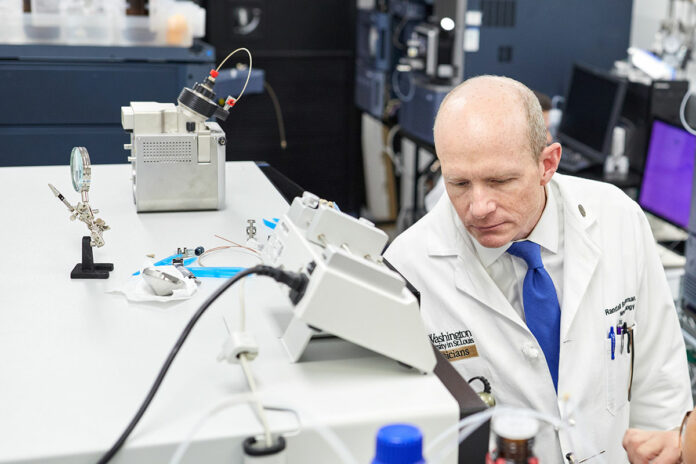
Scientists develop a blood test for a faster and more cost-effective method of diagnosing Alzheimer’s Disease.
Accumulation of amyloid plaques and tau proteins within the brain is a characteristic sign of Alzheimer’s disease (AD). Therefore, most screening methods rely on detecting these proteins in spinal fluid samples or via PET brain scans. However, the current methods are either too expensive, invasive, or time-consuming. Therefore, researchers at Washington University School of Medicine in St. Louis have developed a highly accurate blood test for Alzheimer’s disease. The team published their findings in the journal Neurology.
Our study shows that the blood test provides a robust measure for detecting amyloid plaques associated with Alzheimer’s disease, even among patients not yet experiencing cognitive declines.
Dr. Randall J. Bateman, senior author
Test Reveals a 93% Accuracy
The blood test assesses the accumulation of amyloid plaques within the brain by calculating the ratio of the levels of the amyloid-beta proteins Aβ42 and Aβ40 in the blood. To determine its diagnostic accuracy, the team conducted a study involving almost 500 patients. The participants belonged to different AD trials in Australia, Sweden, and the U.S. 46 of these patients had already received an AD diagnosis based on a PET scan or spinal fluid assay. Whereas the remaining participants had mild cognitive impairment.
The study found a ‘consistent correspondence’ between participants’ amyloid PET scan status and plasma Aβ42/Aβ40 ratio. When the blood test was combined with the presence of the genetic variant APOE4, it became 88% as accurate as PET scans and 93% as accurate as spinal taps at detecting AD. Moreover, the blood test’s accuracy remained consistent for patients experiencing cognitive decline and even those without symptoms. Thus, demonstrating the test’s ability to diagnose Alzheimer’s in people who have not yet begun showing signs of the disease.
Study authors further emphasize the cost-effectiveness of the blood test as compared to the current diagnostic procedures.
This is not the first time that researchers have explored the use of blood tests in diagnosing Alzheimer’s disease. Previously a team in Sweden developed an algorithm that combined results from blood tests and memory tests to predict the risk of Alzheimer’s. Their diagnostic tool had revealed an accuracy rate of 90%.
Reference:
Li, Yan, et al. “Validation of Plasma Amyloid-β 42/40 for Detecting Alzheimer Disease Amyloid Plaques.” Neurology, vol. 98, no. 7, 2021, doi:10.1212/wnl.0000000000013211.



